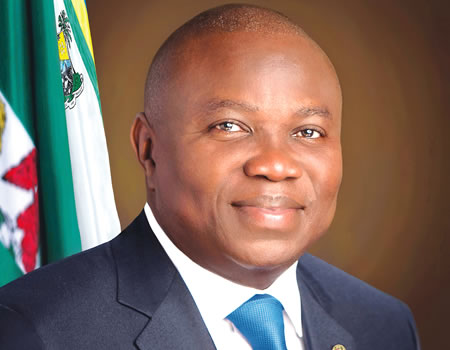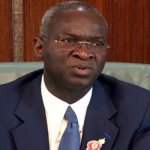THE Environmental Rights Action/Friends of the Earth Nigeria (ERA/FoEN) has cautioned the Lagos government from going ahead with any deal with the World Bank’s International Finance Corporation (IFC) which the group says will ultimately mortgage the future of Lagos citizens and yield no positive result.
US ‘ban’ on Buhari lifted only after electoral victory ― PDP
The ERA/FoEN warning in a statement comes on the heels of the January 7, 2019 IFC and Lagos State Government announcement of a memorandum of understanding for the former to provide “advisory services” for infrastructure development across sectors, including power, transportation, municipal waste, health, education, and energy efficiency.
The IFC Nigeria Country Manager, Eme Essien said that the announcement “is only a first step in the building of a long-term strategic partnership with the largest municipality in Sub Saharan Africa,” claiming that, the IFC’s Cities Initiative will improve living conditions, expand and renew its infrastructure and help reinforce Lagos’s position as an attractive investment destination.
ERA/FoEN said it is however wary of the deal, and in a statement issued in Lagos raised issues with the timing and “the fact that contracts designed by or involving the IFC are most times fraught with booby traps, and operate only to serve private interests and maximise private profit.”
It said that a similar advisory arrangement by the IFC in the water sector was primed to open the doors for a dangerous Public Private Partnership (PPP) water privatisation scheme but was abandoned in 2015 due to the resistance of Lagos residents led by the Our Water, Our Right Coalition.
Deputy Executive Director of ERA/FoEN, Akinbode Oluwafemi said: “It is very disturbing that the Governor Akinwunmi Ambode administration is taking Lagos on this questionable path which will have long term implications even when his administration is ending in a few months’ time. We anticipate the incoming government will review and roll back this deal.”
Oluwafemi explained that, “an agreement which virtually asphyxiates all the sectors in the state will ultimately be extended to a crucial sector such as water going by the IFC description that the deal is ‘the first step.’ This is going to be a long windy road. It is unsurprising that this deal between the World Bank and the Ambode administration was done without proper consultation with the people of Lagos, and this is simply unacceptable.”
The new deal is coming less than a year after an unprecedented delegation of World Bank Executive Directors along with IFC Country Manager visited Governor Ambode.
In the course of that visit, Ambode said that the various budget support initiatives of the World Bank in the water sector in Lagos had resulted in “stronger ties with the institution” and urged it to plough more funds into water and other key sectors in the state.
Oluwafemi pointed out that the IFC conflict of interest in the models it recommends to low and middle income countries like Nigeria are well known, listing the water privatization in Manila as a ready example of how its advice led to two corporations running the city’s water system, yet the arrangement was skewed deliberately to favor only one, which the IFC then invested in. This type of conflict of interest could become a reality in Lagos, as one corporation being considered for the privatization of the Adiyan II waterworks – Metito – lists the IFC as a key shareholder. The IFC was also invested in another multinational vying for control of Adiyan II – Veolia – for several years.
“ERA/FoEN therefore raises issues with the fact that while this new deal deliberately omits the mention of water, it is being implemented under the IFC’s “Cities Initiative,” which has specifically mentioned its focus on water, among other sectors”.
“The IFC serves only private interests and will tie the state and its people down with contracts that will enslave generations. We are asking the incoming administration in Lagos to reject this deal and instead, channel Lagos’ huge human and financial resources into engendering the transformation its people desire”, Oluwafemi said.






